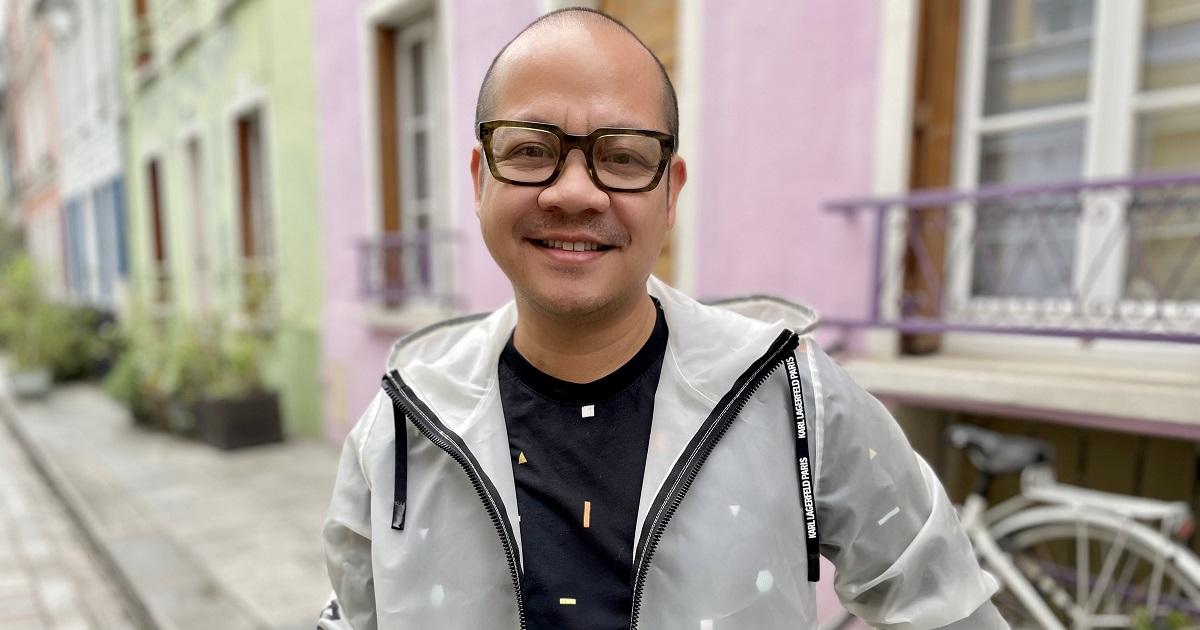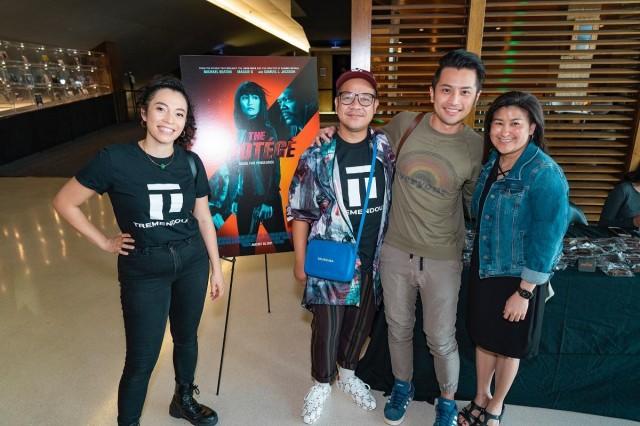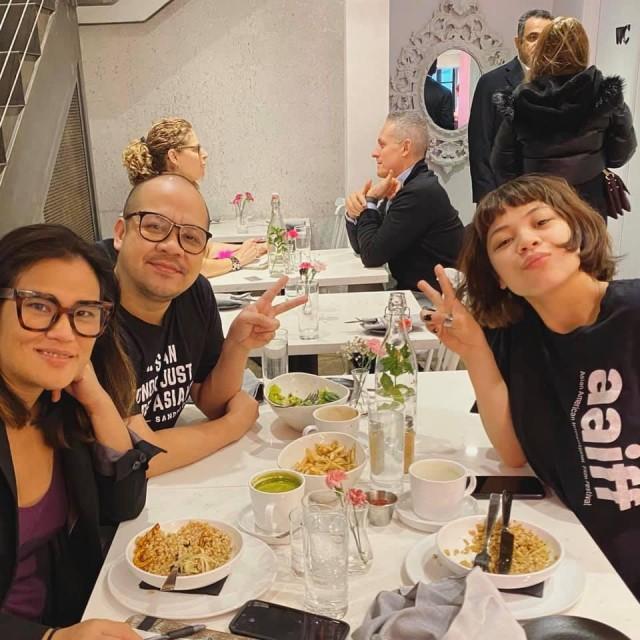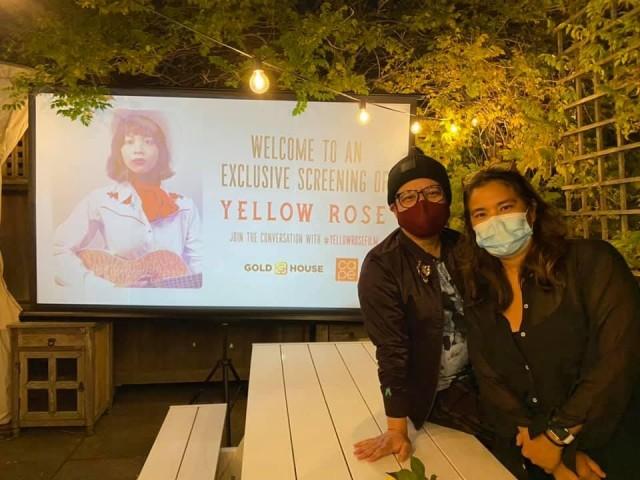Jeremiah Abraham on opening doors for more AAPIs in Hollywood, one movie at a time

LOS ANGELES — If there is one Filipino who is trying to help AAPIs (Asian Americans and Pacific Islanders) to be recognized more and get into Hollywood, it is Jeremiah Abraham.
Born in Manila and with a degree in computer engineering from the University of California Irvine and a masters of communication from the University of Southern California, Abraham shifted his interest toward the entertainment industry after working several years in technology related jobs.
After working at Warner Bros. Entertainment, Conde Nast Entertainment, and becoming the Director of Communications with a multicultural agency, Abraham launched Tremendous Communications, a Filipino owned and operated bicoastal public relations and marketing agency that works with major entertainment studios in Hollywood.
What makes Tremendous Communications different from other PR and marketing agencies is the fact that they help major entertainment studios to be more inclusive of the AAPI community in their campaigns and help spotlight AAPI talent from production to release.

Abraham, who has now worked in the entertainment industry for over 15 years, is the founder and CEO of the company. His overall mission is to impact the visibility of AAPIs in Hollywood which includes his work through Tremendous, producing AAPI films and television shows, and giving back to the APPI community through non-profit organizations.
Based in Brooklyn, New York, we were able to interview Abraham via email. Below are excerpts of our conversation.
You are a computer engineering graduate, but you pursued the field of public relations and entertainment. At what point in your life did you realize that entertainment was your passion?
I probably should have known it early on at university because I was pretty bad at math. Multivariable calculus and three-dimensional physics just weren't my cup of tea, so it wasn't until I was actually working in the aerospace industry that I made a hard decision to really explore what I wanted to do and where I wanted to do it. It's equally important to realize what you don't want to do in addition to what you do want to do. Entertainment just happened to me, with my first industry job at Disney. It really kicked off from there.
What made you become a public relations executive?
I've always been good at communication, negotiation, and strategy—so publicity seemed like the next thing for me. I come from an entertainment marketing background, so I approach PR with a very discerning and strategic approach. I don't want to do things just because they're cool, new, and flashy— but because it's fun and will get the job done.
What made you launch Tremendous Communications and why is it important for you at this time to highlight AAPIs in Hollywood?
Tremendous was a long time coming for me. I knew years ago that I wanted to help change how Asian Americans were seen and valued in Hollywood. It just took me a while to get here—learning the ins and outs of what makes a studio tick and what particular issues were needed to be addressed to make an impact. Highlighting AAPIs in Hollywood has always been important in the work that I've done. I just wanted to be 100% sure that I was prepared with the skill set necessary to run a business that presented itself with authority in the space.
Do you see Hollywood improving in showcasing AAPI talents? What else needs to be done to spotlight AAPI talents?
Hollywood is shifting in the right direction, but there's still a long road ahead. What's critical for us is to really, genuinely support each other in this space both vocally and financially.
Someone recently told me that AAPIs, Filipinos in particular, are "always behind the scenes" and that "it's more important that we're in front of the camera." I can sympathize with this person's frustration but in my experience, there is not enough of us in decision-making positions and not enough of us choosing which stories and which people get to be seen by the masses. It's crucial for us to be represented at all levels of production and business.
What needs to be done is for us to celebrate each other and be the loudest advocates for ourselves—while also fighting the systematic foundation of privilege in this industry that has made billions off our generational trauma, of course.

Where do you think is the problem coming from when it comes to highlighting AAPIs?
We've historically been tokenized and dehumanized. Our cities and cultures have been collateral damage in blockbuster hits, and we've been reduced to cinematic tropes that have conditioned the way audiences expect Asian characters to be. So, when incredibly nuanced, humanized AAPI narratives are presented on screen, it's difficult for the "mainstream" to see us anymore than the sidekick developed to make the lead character storyline shine brighter.
There has also been a disbelief that AAPI stories can be profitable toward the "general market" audience. This has been proven completely false by some wonderful films in the last few years and I'm hoping it continues. I'm glad that we're seeing early changes in how our people are being portrayed, depicted, and included. I hope studios can invest in our community at all levels of production and greenlight stories made for us, by us.
Of all the movies you have handled, what was the most exciting for you and why?
I'm a sci-fi nerd at heart. So, any time I get to geek out like that, I'm completely thrilled. In one capacity or another, I've gotten to work on films like "Gravity," "Fantastic Beasts" (and the larger "Harry Potter" franchise), "Star Wars," DC movies, Marvel… and every moment I was like, "Am I really getting paid to do this right now?" For the longest time, "Batman" was the reason why I was able to pay rent.

You are also a co-producer of a number of Filipino films like "Yellow Rose," "Lingua Franca" and "Concepcion." What kind of challenges have you experienced as a producer and how did you overcome them?
One of the crucial challenges that we all face in this industry is how Filipino stories are really valued. This is shifting very slowly after Diane Paragas' "Yellow Rose" and Isabel Sandoval's "Lingua Franca"... and will shift even more after the world sees Jo Koy's "Easter Sunday."
But what we've heard a lot is that our films are "too small" or that people don't know "how to market Filipinos" to the world. And this is just a lazy excuse to say that they don't think we'll make studios any money. This is what I'm trying to address in both the production and the publicity side of my work. That our stories and our people are incredibly valuable. That there is a market for us, that we deserve your investment.
Can you talk more about your upcoming project with Jo Koy which is "Easter Sunday"?
Tremendous is supporting the film's publicity and outreach efforts. That's all I can say right now! Let's go, Jo Koy!
You are also a Board Member of FilAm Arts. Talk about the importance of having FilAm Arts for the Filipino community in Southern California.
Some of my fondest memories of the Filipino American community growing up was being at FPAC. I remember the joy it brought people and the inspiration it had on me to do good for FilAms. So, when Giselle Töngi called me to ask if I would consider joining the advisory board, I had no doubt in my mind that I wanted to be part of this. FilAm Arts has been a staple among FilAms in Southern California, and I want to ensure that future generations are inspired by their programming as well.
What is it about your job that keeps you going and what is your motto in life?
I love movies. I really do. Growing up, I loved the experience of going to a theater and immersing yourself in another world. So, knowing that I get to be part of these stories and these characters' lives is really pretty awesome to me. And really, it's the people too.
Tremendous exists because we want to serve a larger purpose by working on blockbuster films. And look, this job isn't easy. As an entrepreneur, I have to wear so many hats and do a ton behind the scenes to make this all work.
People see the red carpet premieres, but nobody sees what needs to be done to get there—the 3:00 a.m. work sessions, the waves of anxiety that happens before every big meeting, the planning, the taxes.
If I had a choice, I would still do it all over again. What we do is awesome, and I wouldn't have it any other way.
—MGP, GMA News




